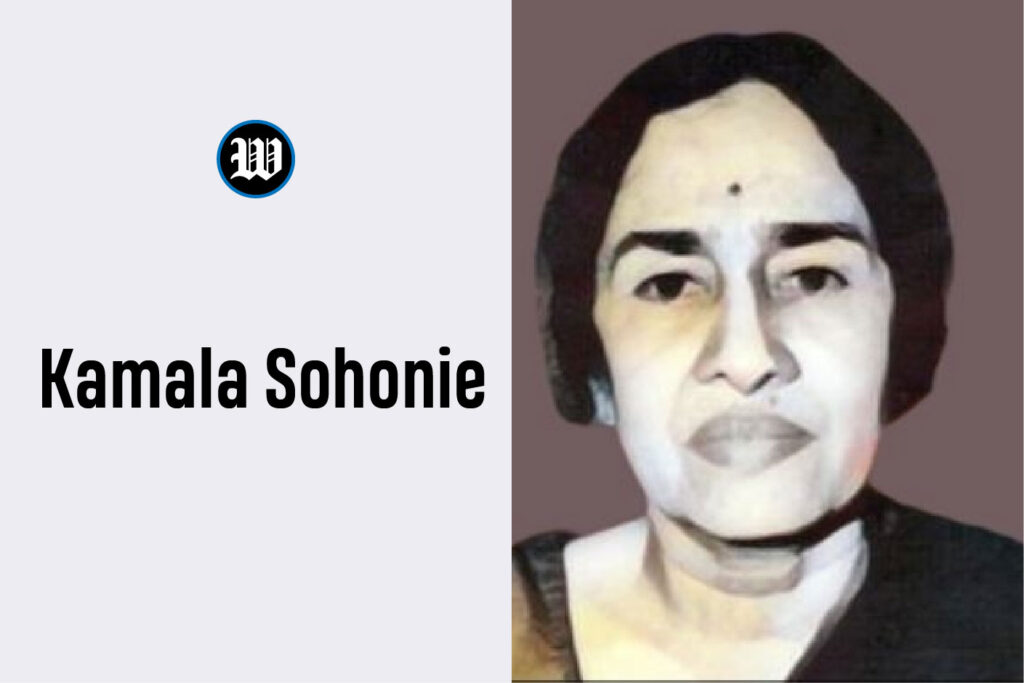Kamala Sohonie was a trailblazer in the world of science, making history as the first Indian woman to receive a PhD in a scientific discipline. Her pioneering work in biochemistry not only broke gender barriers but also laid foundational research that has influenced generations. In this comprehensive guide, we delve into her personal life, professional achievements, and the profound impact of her work.
Early Life and Education
Born into a supportive family that valued education, Kamala Sohonie’s early years were instrumental in shaping her future. Her curiosity and passion for science were evident from a young age, leading her to pursue higher education in a field dominated by men at the time. Despite facing initial rejections, her determination saw her being admitted to the Indian Institute of Science (IISc), where she began her groundbreaking research.
Kamala Sohonie’s Family Influence
Kamala’s family background played a critical role in her academic and professional pursuits. Her family’s encouragement and support helped her navigate the challenges of her time, setting her on a path to scientific discovery.
Major Contributions and Achievements
Kamala Sohonie’s research focused on the proteins in milk and legumes, which had significant implications for nutrition science. Her findings helped understand nutritional properties that were vital for combating malnutrition, a prevalent issue in India during that era. Her work earned her a PhD and opened the doors for many other women in the sciences.
Breaking Barriers
Kamala’s journey was not without its challenges. As the first woman to gain entry into the IISc, she paved the way for future generations of women scientists in India and beyond. Her perseverance in the face of adversity remains a testament to her resilience and dedication to science.
Kamala Sohonie’s Later Years and Legacy
After her retirement, Kamala Sohonie continued to be an advocate for science and education, inspiring young students and particularly encouraging women to pursue careers in science. Her legacy is not just in her scientific achievements but also in the societal barriers she helped dismantle.
Kamala Sohonie’s Contributions to Society
Beyond the laboratory, Kamala’s work had a profound societal impact. Her research contributed to better nutritional understanding and policies in India, improving the lives of countless individuals.
FAQs About Kamala Sohonie
What made Kamala Sohonie’s work unique?
Kamala Sohonie was a pioneer in protein biochemistry in India. Her unique approach to studying the nutritional content of native Indian food sources changed how nutritional science was approached in the context of Indian dietary habits.
How did Kamala Sohonie impact future generations?
Kamala not only opened doors for women in the scientific community but also mentored many young scientists. Her legacy continues to inspire a new generation of scientists who admire her dedication and achievements.
What challenges did Kamala Sohonie face in her career?
As the first Indian woman to pursue a doctorate in science, Kamala faced significant societal and institutional hurdles. Her determination in overcoming these challenges paved the way for other women in science.
Conclusion
Kamala Sohonie’s life and work exemplify the spirit of perseverance and curiosity. Her contributions to biochemistry have left an indelible mark on science and society, making her a true pioneer. Her story continues to inspire and resonate with all who advocate for women in science and education.
People Also Read: Exploring the Multifaceted World of Salma Hayek: From Cinema to Personal Life


